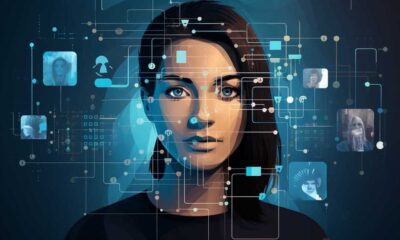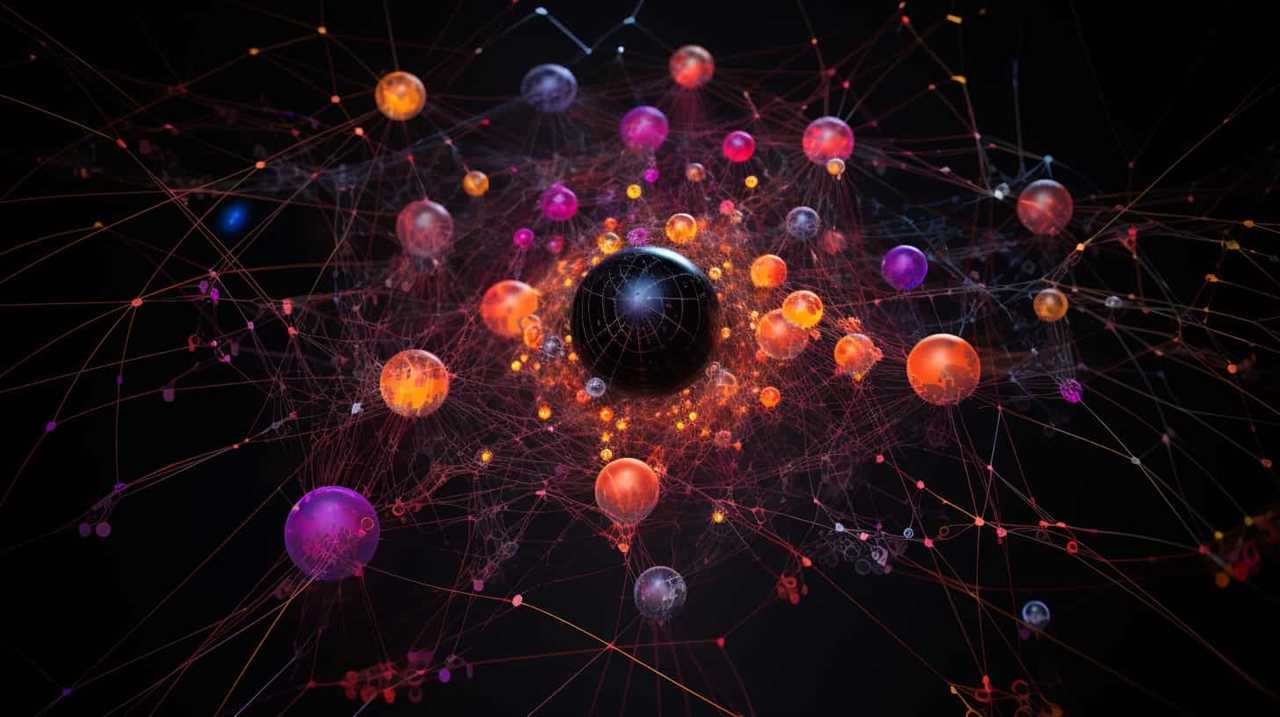Global AI Race Intensifies With OpenAI’s Breakthroughs
The global race to develop artificial intelligence (AI) technology is heating up, and OpenAI is leading the charge. Their recent breakthroughs in AI have the potential to revolutionize industries, including the automotive sector. With OpenAI’s advancements, self-driving cars could soon become a common sight on our roads.
Unleashing the Thrilling Transformations of the Fourth Industrial Revolution
The fourth industrial revolution is upon us, and AI is at the forefront of this thrilling transformation. From autonomous vehicles to smart factories, AI has the power to reshape our world. The automotive industry is embracing this revolution, with companies like Tesla and Waymo paving the way for a future where cars are not just modes of transportation, but intelligent machines capable of making decisions on their own.
Revolutionary Neuralink: Unlocking the Power of the Human Brain
Imagine controlling your car with your thoughts. That’s the future Neuralink envisions. Elon Musk’s neurotechnology company is working on developing a brain-computer interface that could revolutionize the automotive industry. By connecting our minds directly to machines, Neuralink aims to enhance human capabilities and create a seamless interaction between humans and AI-powered vehicles.
Unlocking Potential: AI Applications in Finance Explored
Artificial intelligence is not limited to the automotive industry. It has the potential to transform the financial sector as well. From fraud detection to algorithmic trading, AI is already making its mark in finance. With AI’s ability to analyze vast amounts of data and make predictions, financial institutions are able to make better-informed decisions and provide personalized services to their customers.

Elon Musk: Exploring War, AI, and the Future of Technology
Elon Musk is known for his bold visions of the future, and his thoughts on AI are no exception. Musk has expressed concerns about the potential dangers of AI, even going as far as calling it a “fundamental risk to the existence of human civilization.” Despite these concerns, Musk believes that AI has the potential to enhance our lives if used responsibly. He is actively working on AI technologies, including self-driving cars, through his companies Tesla and Neuralink.
Exploring the Impact of Artificial Intelligence on Education
The impact of AI is not limited to industries like automotive and finance. It is also making its way into the field of education. AI-powered tools and platforms are being used to enhance learning experiences, personalize education, and provide targeted interventions for students. While some fear that AI may replace teachers, experts believe that it will instead augment their capabilities and enable them to provide more personalized instruction to students.
Transforming Learning With Education AI
Education AI is revolutionizing the way we learn. From adaptive learning platforms to intelligent tutoring systems, AI is transforming traditional classrooms into interactive and personalized learning environments. By analyzing student data and providing real-time feedback, AI-powered education tools are able to tailor instruction to individual students’ needs, helping them achieve better learning outcomes.
Examining the Debate: Will AI Replace Teachers?
The debate over whether AI will replace teachers is a hot topic in the education world. While some argue that AI has the potential to automate certain tasks and free up teachers’ time for more meaningful interactions with students, others fear that it may lead to job losses and a lack of human connection in the classroom. The truth lies somewhere in between, as AI is expected to augment rather than replace teachers, allowing them to focus on what they do best: inspiring and guiding students.
14 Ways to Leverage Generative AI for Content Creation in Media & Entertainment
Generative AI is revolutionizing content creation in the media and entertainment industry. From generating realistic images and videos to creating personalized music playlists, AI is pushing the boundaries of creativity. With its ability to analyze patterns and generate new content, AI is helping content creators in the media and entertainment industry produce more engaging and tailored experiences for their audiences.
Microsoft offers AI watermarking to combat deepfakes and misinformation in elections
Deepfakes and misinformation have become major concerns in today’s digital age, especially during elections. To combat this, Microsoft is offering AI watermarking technology that can detect and verify the authenticity of images and videos. By adding invisible watermarks to media files, AI can help prevent the spread of fake news and ensure the integrity of information during critical times like elections.
Banking as a Service: Revolutionizing the Financial Industry with Customized Solutions
The financial industry is undergoing a digital transformation, and AI is at the forefront of this revolution. Banking as a Service (BaaS) platforms are leveraging AI to provide customized solutions for customers. From chatbots that assist with customer inquiries to algorithms that analyze financial data, AI is streamlining processes and making banking more accessible and convenient for consumers.
AI’s Game-Changing Influence on Media & Entertainment
AI is changing the game in the media and entertainment industry. From personalized recommendations on streaming platforms to virtual reality experiences, AI is enhancing the way we consume and interact with media. By analyzing user data and preferences, AI algorithms are able to deliver tailored content, creating a more immersive and engaging entertainment experience.
14 Ways Virtual Reality and Generative AI Will Shape the Future of Gaming
Virtual reality (VR) and generative AI are shaping the future of gaming. From realistic virtual worlds to AI-generated characters and storylines, VR and AI are pushing the boundaries of gaming. With VR headsets becoming more affordable and AI algorithms becoming more sophisticated, the gaming industry is poised for a revolution that will redefine how we play and interact with games.
The Rise of AI-Powered Cybercrime: A Wake-Up Call for Cybersecurity
As AI technology advances, so does the threat of AI-powered cybercrime. Hackers are leveraging AI to develop sophisticated attack techniques that can bypass traditional security measures. This rise in AI-powered cybercrime is a wake-up call for the cybersecurity industry, prompting the development of AI-driven security solutions that can detect and prevent these advanced threats.
Debunking Misconceptions About Artificial Intelligence
Artificial intelligence has long been a topic of fascination and speculation, often surrounded by misconceptions and myths. It’s time to set the record straight. AI is not a sentient being that will take over the world, nor is it a magic solution that can solve all our problems. Debunking these misconceptions is crucial to understanding the true potential and limitations of AI.
Uncover Truths: Debunking Myths About GMOs
Just like AI, genetically modified organisms (GMOs) have been the subject of myths and misconceptions. From claims that GMOs are unsafe to the belief that they are unnatural, these myths often overshadow the benefits of GMO technology. By uncovering the truths about GMOs, we can have a more informed and nuanced discussion about their role in agriculture and food production.
AI-Driven Personalized Experiences: Elevate UX
User experience (UX) is a key focus for businesses, and AI is playing a crucial role in delivering personalized experiences. From chatbots that provide instant customer support to recommendation algorithms that suggest relevant products, AI is elevating UX to new heights. By analyzing user behavior and preferences, AI-powered systems can anticipate and meet user needs, creating seamless and tailored experiences.
Addressing Ethical Concerns in the Implementation of AI: Our Perspective
The implementation of AI raises important ethical concerns that need to be addressed. From biases in AI algorithms to privacy concerns, it is crucial to ensure that AI is developed and deployed in an ethical manner. Our perspective on these ethical concerns aims to foster a responsible and accountable approach to AI development and use.
Beyond Firewalls: The Deep Psychological Safety of AI Security
AI security goes beyond traditional firewalls and encryption algorithms. It also encompasses the deep psychological safety of AI systems. Ensuring that AI systems are resilient to adversarial attacks and can withstand attempts to manipulate or deceive them is crucial for maintaining cybersecurity in an AI-driven world.
Defending AI Systems: How to Thwart Adversarial Machine Learning Attacks
Adversarial machine learning attacks pose a significant threat to AI systems. Hackers can manipulate AI algorithms by introducing subtle changes to input data, leading to incorrect or malicious outputs. Defending against these attacks requires robust security measures and techniques that can detect and mitigate adversarial behavior.
A Critical Moment: How AI Security Shapes Our Industry and Our Strategies to Stay Ahead
AI security is a critical aspect of our industry and our strategies to stay ahead of cyber threats. As AI technology becomes more prevalent, it is essential to prioritize security measures that can protect AI systems from attacks. By staying ahead of the curve and implementing strong security practices, we can ensure the integrity and reliability of AI-powered technologies.
AI Security: an Invisible Shield for Your Cyber Space
AI security acts as an invisible shield for your cyber space, protecting you from threats and vulnerabilities. From detecting and preventing cyber attacks to identifying suspicious behavior, AI security solutions provide a layer of defense that is crucial in today’s interconnected world.
Bulletproofing AI: The Ultimate Defense Against Cyber Threats
Bulletproofing AI is the ultimate defense against cyber threats. By designing AI systems to be resilient and robust, we can minimize the risk of attacks and ensure the reliability of AI technology. From secure coding practices to continuous monitoring and updating, bulletproofing AI is essential for safeguarding against cyber threats.
Humane to Launch AI Pin, a Screenless Wearable Smartphone
Humane, a technology company focused on creating ethical and intuitive products, is set to launch AI Pin, a screenless wearable smartphone. This innovative device aims to reduce reliance on screens and promote healthier digital habits. With AI-powered voice recognition and natural language processing, AI Pin offers a new way of interacting with our devices.
Unveiling Recent AI Technology Advancements: A Closer Look
Recent advancements in AI technology are pushing the boundaries of what is possible. From breakthroughs in natural language processing to advancements in computer vision, AI is becoming more sophisticated and capable. Taking a closer look at these recent advancements can help us understand the potential impact of AI on various industries and our daily lives.
Lawrence Lessig on Free Speech, the Internet, and Democracy
Lawrence Lessig, a renowned legal scholar and advocate for free speech, shares his insights on the internet, democracy, and the challenges we face in the digital age. Lessig’s perspectives on the intersection of technology and society shed light on the complex issues surrounding AI, privacy, and the future of our democracy.
Deep Learning: AI’s Secret Sauce Unveiled
Deep learning is the secret sauce behind AI’s impressive capabilities. By mimicking the structure and function of the human brain, deep learning algorithms can analyze vast amounts of data and make sense of complex patterns. This powerful technique is at the core of many AI applications, from self-driving cars to voice assistants.
Curated Insights: Latest Breakthroughs in Machine Learning Tech
Machine learning is at the forefront of AI research, and the latest breakthroughs in this field are shaping the future of technology. From reinforcement learning to transfer learning, machine learning techniques are becoming more powerful and versatile. Curated insights into these latest breakthroughs can provide a glimpse into the exciting developments happening in the world of AI.










